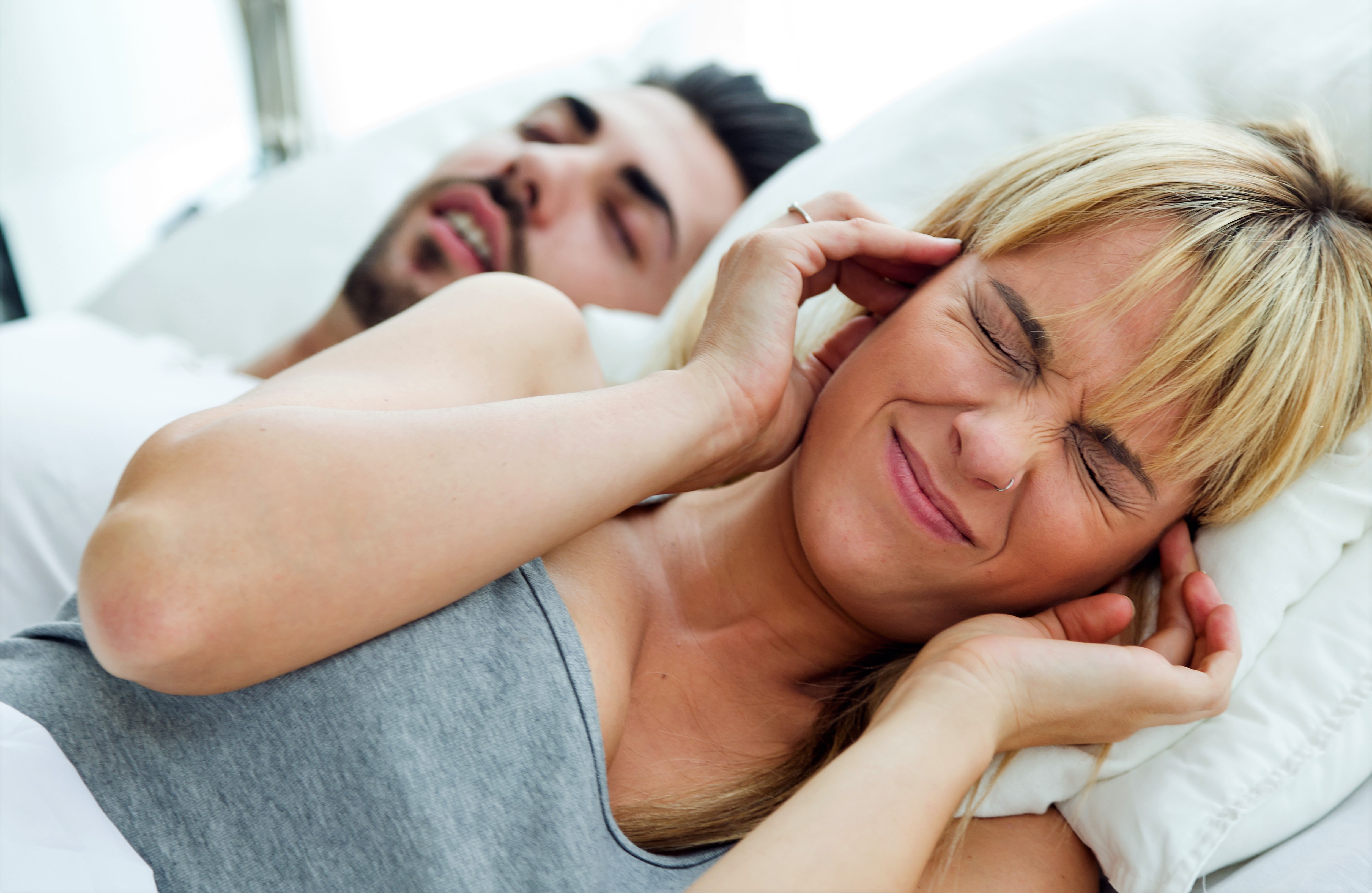By: Jenny A. Kanganis, D.D.S. and Pankaj P. Singh, D.D.S., M.D.

Are you like 90 million other adults that suffer from sleep deprivation and chronic fatigue? Do you wake up multiple times in the middle of the night trying to catch your breath, gasping for air or choking? Do you feel tired and sluggish during the day? Do you have trouble focusing and concentrating? Do you clench or grind your teeth during sleep? If so, you may be suffering from Obstructive Sleep Apnea, which is a serious sleep disorder that can negatively impact your health if left untreated.
So what is the difference between snoring and sleep apnea? Snoring is a hoarse or harsh sound from the nose or mouth that occurs when breathing is partially obstructed while sleeping. This can be caused by an enlarged tongue, a low draping soft palate, a deviated septum, being overweight, a large neck size (greater than 16 inches for women and greater than 17.5 inches for men), enlarged tonsils, or congestion. Sleep apnea, however, is a sleep disorder with serious medical and health complications, where an individual stops breathing anywhere from a few seconds up to a minute and a half or more, sometimes hundreds of times each night. Not everyone who snores has sleep apnea; however, one of the most common symptoms of sleep apnea is snoring. The only way to truly diagnosis sleep apnea is with an overnight sleep study, either at a Sleep Center or with a comfortable at-home study.
During episodes of sleep apnea, blood oxygen levels can decrease significantly, increasing one’s resting blood pressure and causing an irregular heart rate. Additionally, after multiple apneic episodes, one can wake up feeling unrested, with headaches and tightness in the jaws from clenching all night. Untreated sleep apnea can also lead to unexplained weight gain, fatigue, memory loss, depression, loss of libido, and cardiovascular disease, including high blood pressure, congestive heart failure, stroke, and heart attack.
The good news is that sleep apnea can be treated. Once a diagnosis is made, the appropriate treatment is determined, depending on the severity of the sleep apnea. For severe cases, a Continuous Positive Airway Pressure (CPAP) machine might be the most suitable treatment. Essentially, this device generates a steady flow of pressurized air that travels from the air compressor through a flexible hose connected to a facial or nasal mask, which then maintains an unobstructed flow of oxygen to your lungs. The pressure of this steady movement of air keeps the compressed or blocked airways continuously open, so that you are getting the necessary oxygen as you sleep.
Another successful treatment for mild to moderate Obstructive Sleep Apnea or for those who were unsuccessful with CPAP therapy, is Oral Appliance Therapy. This is a custom-fit appliance, made by a specially trained dentist, which moves your lower jaw forward, so that it prevents your tongue from blocking your throat. One of the biggest advantages of an oral appliance is that it is significantly less cumbersome and much more comfortable to wear than a traditional CPAP machine, as it does not involve a facial or nasal mask. Another plus of an oral appliance is that it is not noisy, significantly easier to travel with, and much more hygienic than a CPAP. If not properly cleaned, a dirty CPAP could potentially lead to sinus and other respiratory infections, including pneumonia and bronchitis.
When being fit for an oral appliance, one size does not fit all. And while there are many methods to determining the proper position of the mandible, the most accurate, scientific method for a perfect fit and ideal position can be done with a process that uses a predictive algorithm to determine ideal jaw position for effective airway management.
In summary, speak to your dentist or your physician if you snore or if you feel you may have sleep apnea, so that you can be properly screened, diagnosed, and treated. It can literally save your life.

